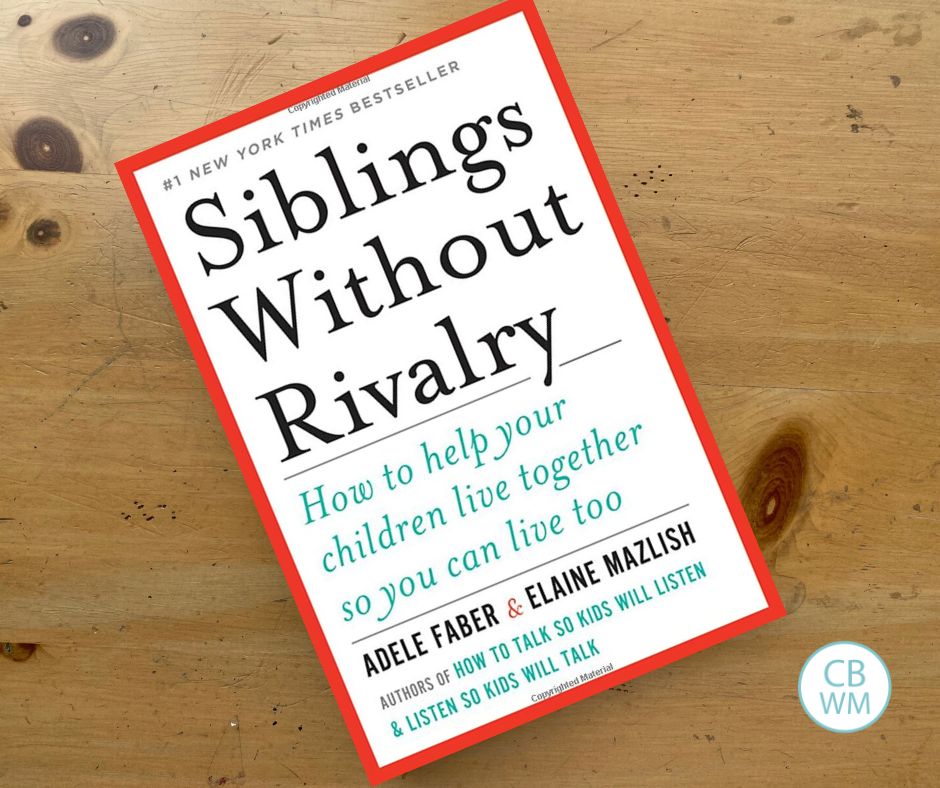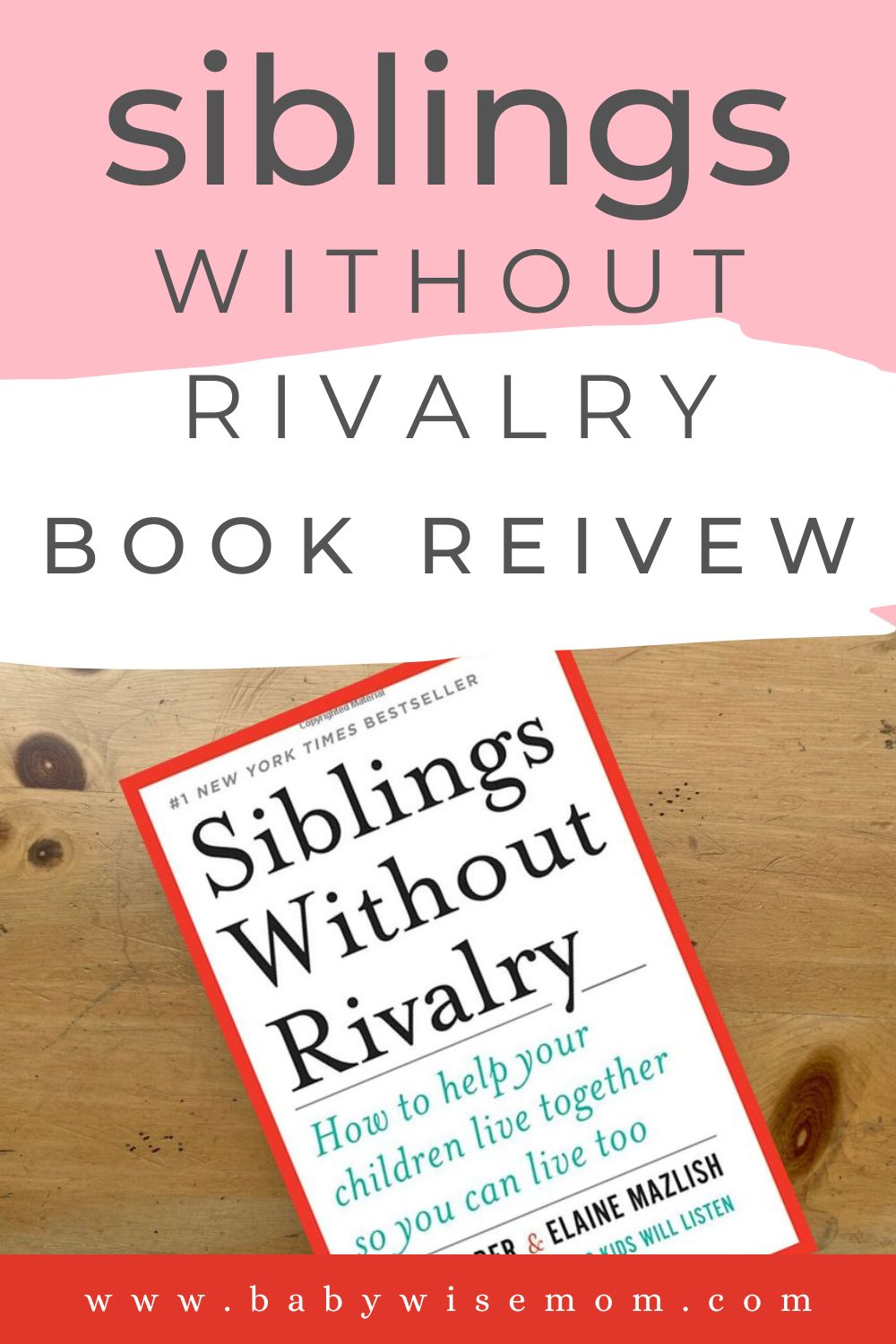Review of the book Siblings without Rivalry by Faber and Mazlish. Is the book worth reading? Do you need to own it? What is good in it? What is not as good in it? Get the info here!

I recently read the book Siblings Without Rivalry (Siblings Without Rivalry: How to Help Your Children Live Together So You Can Live Too by Adele Faber and Elaine Mazlish).
I feel kind of mixed on my feelings on the book. There are parts I really liked and there are parts that I really didn’t care for.
Was it worth the read? Yes. It is a fast, easy read and there are good and helpful tidbits you can pick up along the way. If you see it in your library or your friend has one you can borrow, definitely read it!
Is it a must-own? I wouldn’t say so. I did buy it in order to read it, but I don’t know if I would be buying it if I had read it first. I really feel luke-warm about it–BUT perhaps I will find it more useful as my children get older or if I get a dynamic of children who tend to fight more (in other words, I don’t know what Brinley will bring to the party).
I must also point out that this was a #1 New York Times best seller and it rates very well on Amazon.
I think I might be less impressed with it than many people who read it because a lot of their recommendations are pretty basic in good communication.
I minored in communications, so I have spent many hours learning these communication theories and many hours testing them in my own conducted studies. A person who hadn’t done that would probably find more “aha!” moments than I did.
I think if you have children who are fighting, there is a good chance you will find some tools in this book that can help you with it–but like all things, make sure you fundamentally agree with what decide to try. Make sure it lines up with your family’s beliefs, goals, and values.
If you don’t have children who are having major fighting issues, it can be helpful for you to see what to avoid doing and help you have something to draw from in the future if issues arise.
Things I Didn’t Like
Something I didn’t really like in the book was how the authors had adults act out situations, pretending to be children, and then having the adults describe how they felt during the different scenarios, and then deciding that is how children feel, too.
I don’t think children process things the same way adults do, so while you might be able to get an idea of how the child was feeling by looking at it from your perspective, I think it is a reach to then decide that is definitely how children feel in situations and what children are thinking in situations.
Another thing I did not like is the authors suggest having children use mean language in place of physical harm.
I guess I can see why some people might prefer that approach; I can see thinking you would rather them be mean to each other through words or other means (like one example was having a child pretend the paper was the sibling and stabbing holes in it) than through physical harm, but I don’t think it needs to be an either/or situation.
I don’t think that addresses the heart of the issue, and I don’t think aggression in different forms is necessarily what I want for my children.
Things I Liked
Something I liked in the book was to acknowledge when the children have negative feelings toward each other.
It is totally normal to have negative feelings toward other people; we all do it even as adults. Pretending those feelings aren’t there doesn’t make the feelings go away or solve the root of the problem.
A tactic I like is describe what you see when there is a fight going on. Describe what is happening and how you hear the children feeling about it.
Another aspect I loved is the entire chapter devoted to talking about how we do not need to treat our children equally–you know how I feel about fair vs. equal.
There is more I do and don’t like, but I will save those for further and more in depth conversation later.
Have any of you read this book? What did you think?
Related Posts
- Planning Your Schedule for Multiple Children
- Structured Playtime With Siblings {Sibling Playtime}
- How to Keep Siblings in the Funnel
- How to Respond to Siblings Fighting
- Helping Siblings Like Each Other

